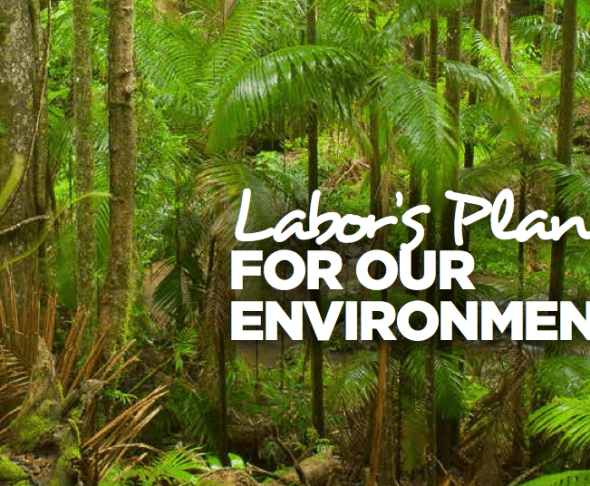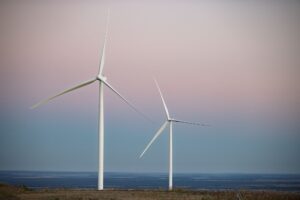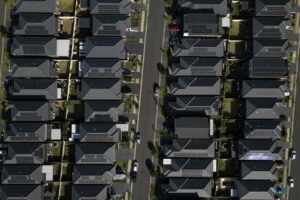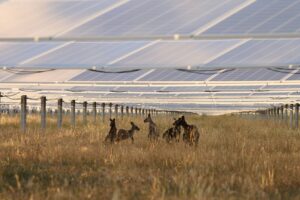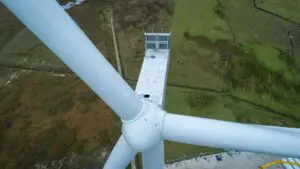The NSW Labor Party has promised a fair price of solar and an emphasis on decentralised generation as the key features of its environmental and energy policies released on Tuesday.
Labor is combining the climate change and energy ministries into one, which is a statement of intent in itself. “Addressing the challenges of climate change is inextricably bound up with ways we use energy,” shadow minister Adam Searle told RenewEconomy in an interview. “This is a deliberate policy choice to address that issue.”
The document outlines around 10 major policy points, including an undertaking to decommission old and obsolete coal fired generators and remove planning restrictions against wind farms, and require government agencies to buy renewable energy.
It supports the current national renewable energy target, but Labor says it also investigate “reverse auctions”, as has been used in the ACT and also canvassed by the new Labor government in Queensland.
But the most interesting is its focus on rooftop solar and decentralized energy. It wants to stop households from being “ripped” off by energy retailers on their exports into the grid, and also wants to allow them to sell electricity into the market to help reduce peak demand – a concept that is being trialled in some areas.
Searle says that the energy system is moving so fast – energy storage is likely to do to networks what emails did to Australia Post – that the network assets are best left in government hands.
“We think there is a danger that privatization could inhibit those developments,” he said, particularly if, in privatising the system, that there are “special clauses that public will not know about”, in effect protecting the value of those assets.
Searle says a Labor government will give IPART “a strong mandate” to set a new solar tariff, encouraging them to look at the benefits rather than just the costs.
Currently, retailers in NSW are not required to pay anything for exports of excess electricity from solar panels. There are currently 260,000 solar households in the state, but the issue on zero tariff payments promises to be a significant one when 146,000 households now on the “premium” tariff find those payments ending at the end of 2016,
“There is a a lot of disquiet, especially when you look at what they (the retailers) charge their customers,” Searle said. “We will give IPART a strong mandate to set a fair tariffs for feeding into the grid. We want to encourage people to generate more solar electricity.”
Searle also said Labor supported the current renewable energy target, and warned that Australia was beginning to lag behind other countries in large scale renewables.
Searle said that Labor would also create an “office of renewable energy”, which will hold a roundtable with representatives of “old and new energy industries” to identify the key challenges that need to be addressed.
“It will remove barriers to the growth of a clean energy sector and model options for decentralised energy solutions,” the policy document says.
One such barrier to renewables growth a NSW Labor government planned to remove were the “draconian” restrictions placed on wind farms by the Baird Government.
“It’s unfair that there’s arbitrary setbacks around wind turbines, but there’s not around coal mines,” Premier Luke Foley said.
The Office of Renewable would also oversee a fund of $6 million over four years, to augment proposals put forward by councils and communities, including grants to Community Renewable Energy projects of up to $500,000.
Foley said his government would also impose a state-wide moratorium on CSG activity, which would not be lifted unless and until the industry was proven to be safe. CSG mining “no-go zones” would also be designated.
And in a show of defiance to the fossil fuel industry, the plan also commits a NSW Labor government to implementing all 26 recommendations of the Independent Commissions against Corruption’s report, Reducing the Opportunities and Incentives for Corruption in the State’s Management of Coal Resources.
The policy document says Labor would also will initiate a national framework for the decommissioning of obsolete coal generation plants.
As mentioned above, the policy commits to keeping the state’s electricity publicly owned, which Foley says will better facilitate the state’s shift to a market where individuals and communities will be able to use renewables and battery storage to generate “most, if not all” of their energy needs.
“A NSW Labor government will keep the electricity networks in public hands and shepherd the shift to affordable, decentralised and renewable energy,” the policy document says.
“Decentralised renewable energy generation will allow communities and businesses to share excess energy, trading amongst themselves. The grid will be just as important for facilitating this new regime, but it will be profoundly different.”
Labor also promises to help fossil fuel dependent communities to “diversify their economic base and capitalise on the global shift to a decarbonized economy.”
The coal-based Hunter Region, for example, would be transformed into a renewable energy hub, with $10 million to be put towards a Newcastle Institute for energy and resources research project into storage; $2 million to establish a Hunter Clean Tech Innovation Taskforce; and $2 million to ensure Hunter TaFe can train workers in industries of the future.
The plan also allows for the deployment of energy efficient lighting to all public hospitals – a $37.4 million initiative that is expected to cut hospital power bills by approximately $72.6 million over 15 years – and commits the government to purchase electricity for its departments and agencies from renewable sources, where possible.

